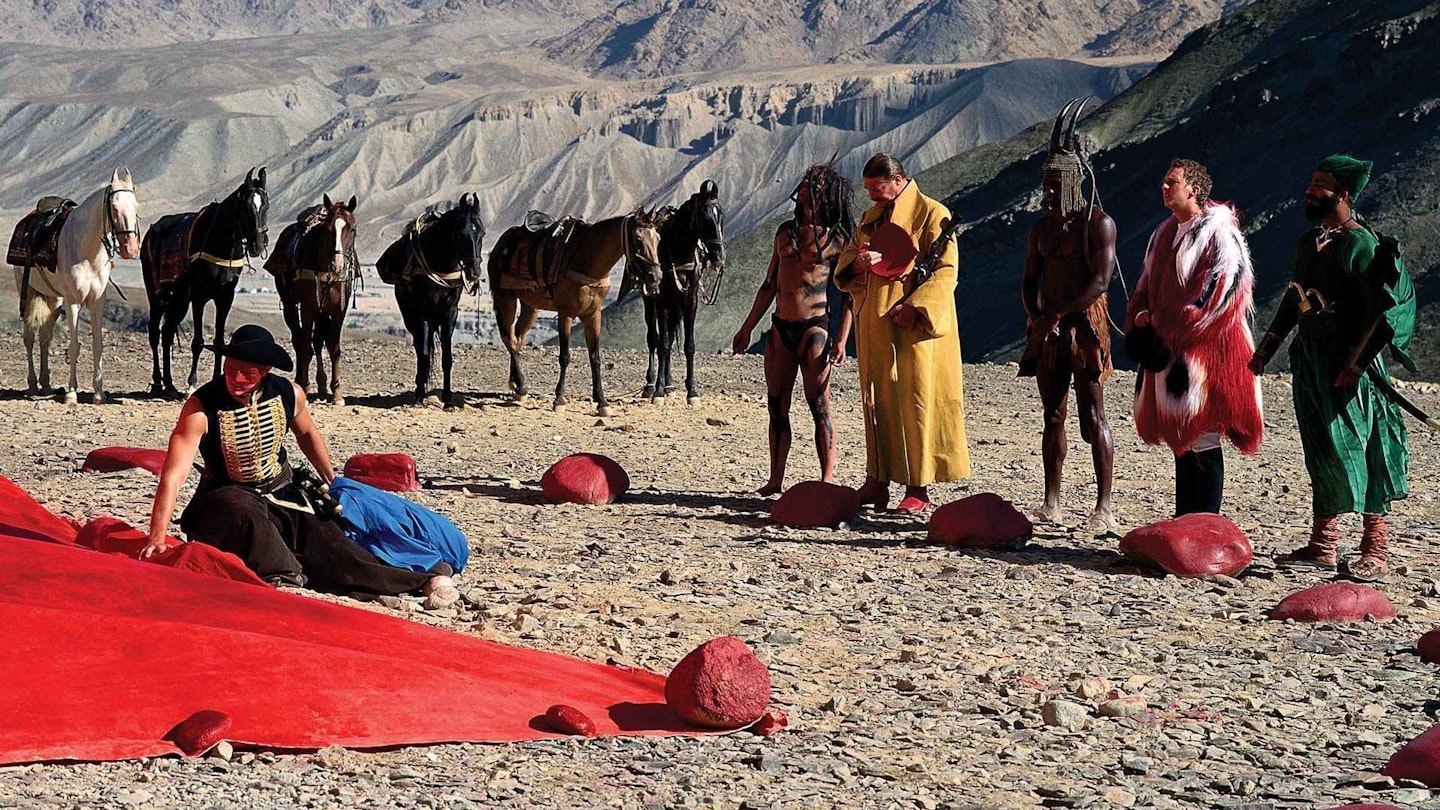One would suspect uni-titled Tarsem has seen The Princess Bride once or twice. There hasn’t been so blatant an influence since D. J. Caruso took Rear Window and repackaged it as Disturbia.
Tarsem’s script (his first) is littered with falls, actual and figurative. Silent movie stuntman Roy Walker (the excellent Lee Pace, so charming in Pushing Daisies) is dumped by his girlfriend and hospitalised after a bridge stunt goes wrong. Bored, he coaxes Alexandria (played with gap-toothed charm by newcomer Catinca Untaru), a little girl who has broken her arm working as a fruit-picker, to sit with him, bribing her with an elaborate tale of five exotic heroes seeking vengeance on a governor who has wronged them in different ways.
For the first two thirds, the Princess Bride comparison is apt. Funny and full of derring-do, it’s great fantasy-adventure, with a Wizard Of Oz-like twist in that the starring roles are inspired by characters Alexandria and Roy see at the hospital and in their own stories. As the little girl — and the audience — gets hooked on Roy’s tale, it transpires that he has darker reasons for telling the story. Eventually it warps into something so unpleasant that Alexandria puts herself into the story to keep it from going off the rails altogether, but by this time it’s clear that this Princess Bride is the nightmare version, and any kids left in the cinema are going to be seriously disturbed.
Music video director Tarsem has built on a talent for knock-out fantasy visuals last showcased in 2000’s The Cell. The Fall looks like nothing on Earth: every location a new Utopia, every costume makes the House Of Flying Daggers look in need of a makeover. While the first two acts more than match the visuals story-wise, the last is so messy it’s like watching another film, with Tarsem seemingly bent on alienating the viewer from the characters as much as possible.
Given that Roy’s inconstant girlfriend shows up only once, his heartbreak and decline is given little context — he’s just the bastard who ruins a good story — while Alexandria turns into a flat caricature of a snivelling child. By the end, you want to give both of them a slap and go back to the fantasy land they started to reveal.
